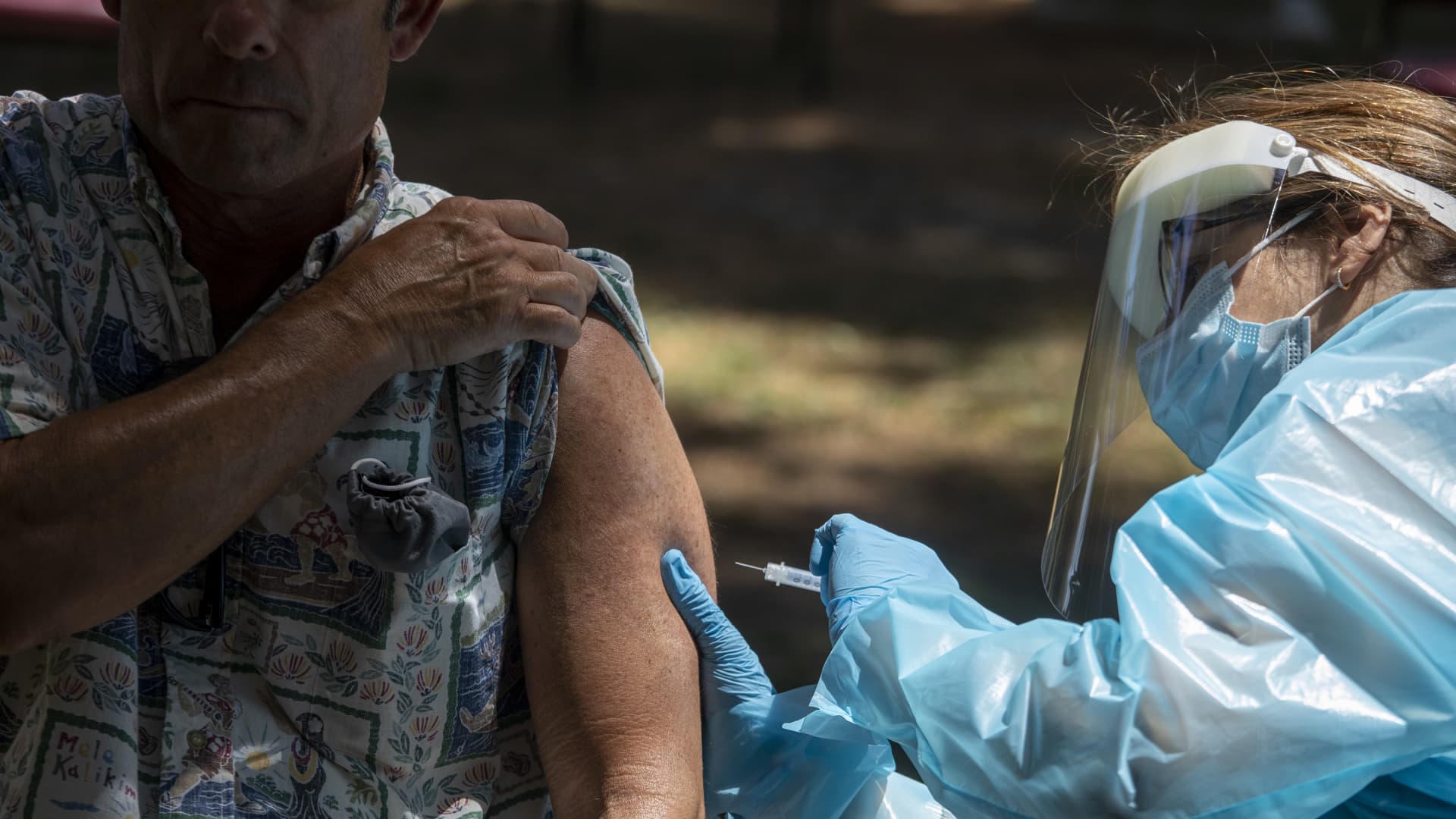
The monkeypox virus is unlikely to be eliminated from the U.S. in the near future, according to a report published by the Centers for Disease Control and Prevention this week.
The CDC, in a technical brief, said the outbreak is slowing as the availability of vaccines has increased, people have become more aware of how to avoid infection, and immunity has likely increased among gay and bisexual men, the group most impacted by the virus.
But low-level transmission of the virus could continue indefinitely among men who have sex with other men, according to the report. The CDC said it does not have a projection of how many total people might get infected by the virus.
The Biden administration declared a public health emergency in August in an effort to ramp up vaccines, testing, treatment and community outreach in an effort to eradicate the virus from the U.S.
The U.S. is trying to contain the largest monkeypox outbreak in the world, with nearly 26,000 cases reported across all 50 states, Washington D.C., and Puerto Rico, according to CDC data. At least two people have died from the disease in the U.S., according to the data.
The global monkeypox outbreak, the largest in history, is highly unusual because the virus is circulating widely in countries where it is not normally found. Historically, monkeypox has circulated in remote parts of West and Central Africa. In that context, people normally caught the virus from animals. There was little spread between people.
Monkeypox is now spreading widely between people, mostly through close contact during sex among gay and bisexual men. The disease is rarely fatal, but patients develop lesions resembling blisters in sensitive areas that are extremely painful. In some cases, the pain is so great people require hospitalization and in rare instances people with weak immune systems have died.
The CDC, in its report, said the virus is still spreading primarily among men who have sex with men. But anyone can catch the virus through close contact with someone who is infected or with contaminated materials. Health authorities have confirmed 29 cases of children catching the virus to date, and 78 total pediatric cases are under investigation as of late September.
Though 96% of patients are men, 408 women have caught the virus to date in the U.S. Four pregnant women and one who was breastfeeding have caught monkeypox.
The CDC said the percentage of patients who identify as gay or bisexual men has declined over time, with 75% of people who provided recent sexual history reporting male-to-male contact.
But a large number of cases are missing data on sexual history and more than 90% of infections are among males, according to CDC. The decline in the percentage of cases reporting male-to-male sexual contact is likely due to missing data rather than a change in how the virus is spreading, according to the public health agency.
The CDC said the outbreak will likely remain concentrated among men who have sex with men over the long term, with infections continuing to decline over the coming weeks and dropping significantly over the next several months.
More than 684,000 people have received the Jynneos monkeypox vaccine so far. Earlier this week, the CDC reported preliminary data indicating that the vaccine is providing at least some protection against infection. The vaccination campaign is primarily focused on gay and bisexual men.
The outbreak could start accelerating again if the virus starts spreading widely among the U.S. population through heterosexual networks or contact that doesn’t involve sex, according to CDC. But there is no country in the current global outbreak that has found clear evidence of sustained spread of the virus outside sexual networks of gay and bisexual men, according to the CDC.
The public health agency also warned that the virus could start spreading faster again among people if it becomes established in an animal population in the U.S. The CDC said it is unknown which animals in North America are most susceptible to infection.
In Africa, the virus mostly spread from animals to people. If monkeypox becomes established in animals in the U.S., it would be very difficult to eradicate.







